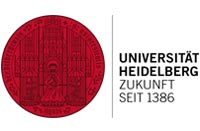Biodiversity in the Agricultural Landscape

How does ecological farming influence plant biodiversity in the agricultural landscape?
Are there positive effects on the landscape level if, for instance, ecological varieties are raised and fields cultivated sustainably?
What is the impact of a fluid transition from conventional to ecological farming?
These questions are the focus of the AgroBioDiv research project, which combines the respective expertise of Heidelberg University researchers in biology and political science.
In addition to exploring biodiversity, the Heidelberg scientists also strive to investigate how policy and public management can support preserving biological diversity in agriculture. The four-year research project headed by Prof. Dr Marcus Koch and Prof. Dr Jale Tosun has approximately 400,000 euros in funding from the State of Baden-Württemberg.
“With the progressive loss of biological diversity in traditional agricultural landscapes, so-called agrobiodiversity is a cornerstone in the ecological fabric of a landscape that has a wide variety of plants, animals, and especially insects,” states Prof. Koch.
“Ecological farming generally has a positive effect on biodiversity. By expanding such farmland, the potential for preserving biological diversity is considerable, especially when managed cohesively.”
Against this backdrop, the Heidelberg researchers will study the interrelationship of cultivated seed and plant material, crop type and varietal diversity, along with the diversity of wild vegetation. They hope their findings will point to how agriculture could be oriented in the transformation from conventional to ecological farming.
The studies are being conducted in selected regions – the city of Heidelberg, the Lake Constance bio-region, and other locations in Baden-Württemberg. The research is participatory in nature and includes interest groups from agriculture, nature conservation, and the economy, among them growers and farmers, marketers and consumers as well as so-called citizen scientists.
“With a view towards the political-administrative process, we also wish to explore what instruments are best suited to achieve a sustainable transformation of conventional agriculture into ecological farming,” explains Prof. Tosun. Using an interdisciplinary approach, the researchers will also study how to raise greater awareness for promoting agrobiodiversity.
Marcus Koch heads the Biodiversity and Plant Systematics division at the Centre for Organismal Studies. The biologist is also director of Heidelberg University’s Botanical Garden. He is especially interested in the research of evolution and biodiversity.
Jale Tosun teaches and researches at the Institute for Political Science. Her work concentrates on comparative public policy, particularly in the fields of environment, energy, climate change, and sustainability.
The “Ecological Varieties for Biodiversity and Climate Protection” project, known as AgroBioDiv for short, is part of the “Ecological Farming” research programme launched by the State of Baden-Württemberg.
Work at Heidelberg University began in July of this year. The state programme aims to bundle thematic research and further develop research activities with non-academic actors. Over the next few years, Baden-Württemberg is funding four collaborations at three universities with a total of 1.2 million euros.
Contact:
Heidelberg University
Communications and Marketing
Press Office, phone +49 6221 54-2311
presse@rektorat.uni-heidelberg.de
Prof. Dr Marcus Koch
Centre for Organismal Studies
Phone +49 6221 54-4655
marcus.koch@cos.uni-heidelberg.de
Prof. Dr Jale Tosun
Institute for Political Science
Phone +49 6221 54-3726
jale.tosun@ipw.uni-heidelberg.de
https://www.cos.uni-heidelberg.de/index.php/m.koch?l=_e
http://www.uni-heidelberg.de/politikwissenschaften/personal/tosun/person/index_e…
http://oekolandbauforschung-bw.uni-hohenheim.de/start-seite
http://oekolandbauforschung-bw.uni-hohenheim.de/agrobiodiv_hintergrund
Media Contact
All latest news from the category: Interdisciplinary Research
News and developments from the field of interdisciplinary research.
Among other topics, you can find stimulating reports and articles related to microsystems, emotions research, futures research and stratospheric research.
Newest articles

Pinpointing hydrogen isotopes in titanium hydride nanofilms
Although it is the smallest and lightest atom, hydrogen can have a big impact by infiltrating other materials and affecting their properties, such as superconductivity and metal-insulator-transitions. Now, researchers from…

A new way of entangling light and sound
For a wide variety of emerging quantum technologies, such as secure quantum communications and quantum computing, quantum entanglement is a prerequisite. Scientists at the Max-Planck-Institute for the Science of Light…

Telescope for NASA’s Roman Mission complete, delivered to Goddard
NASA’s Nancy Grace Roman Space Telescope is one giant step closer to unlocking the mysteries of the universe. The mission has now received its final major delivery: the Optical Telescope…



